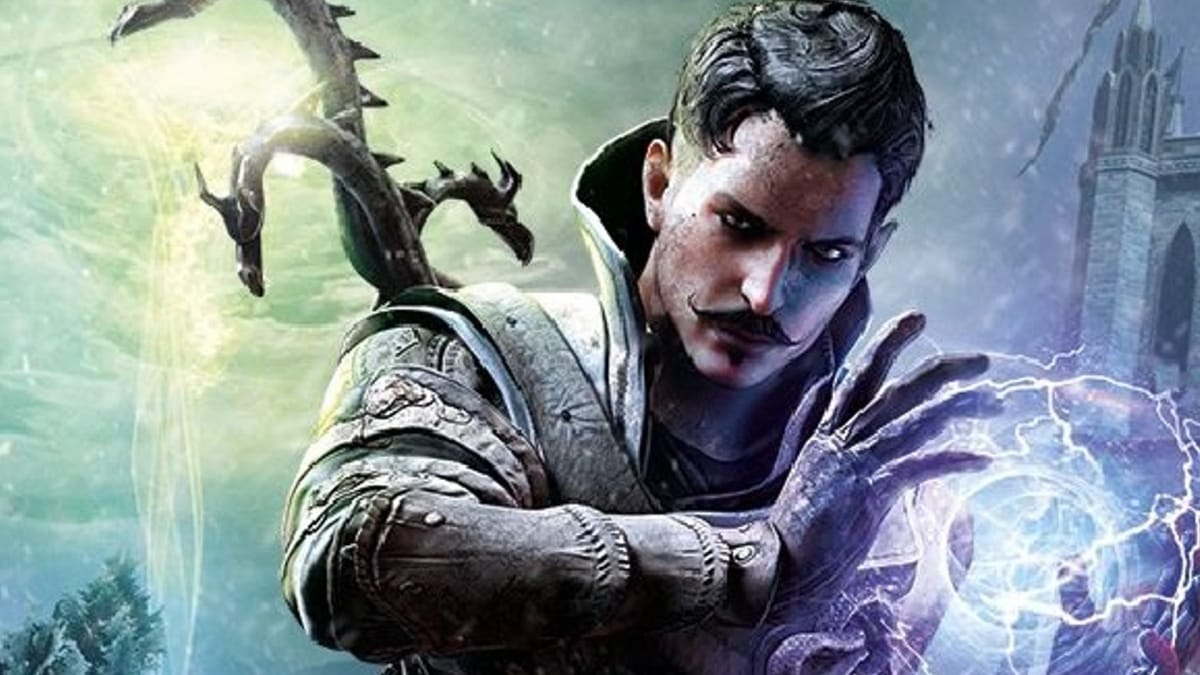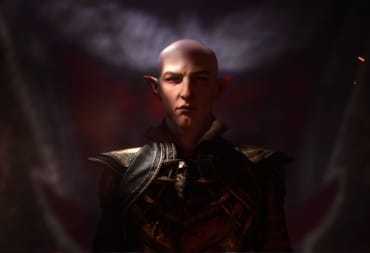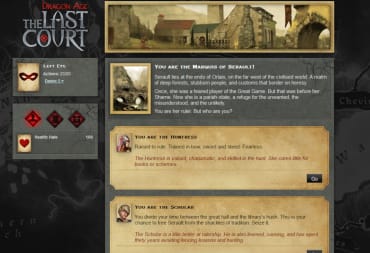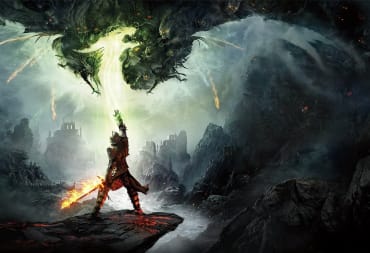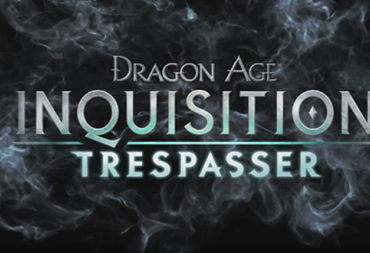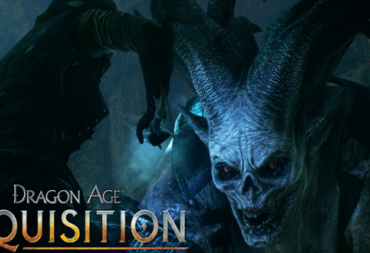BioWare is increasingly becoming a game studio with a mixed reputation by some, in part due to an arguable drop in the quality of its products. The almost comical rage found at the end of Mass Effect 3, to the underwhelming reception of Star Wars: The Old Republic and even Dragon Age: Inquisition, has cooled some to say they are just another proverbial cog in the Electronic Arts machine—a development studio without a soul or charm that made them famous, waiting to be put out to pasture for their failures.
Such criticisms do have some validity to them in that regard; gameplay-wise BioWare struggles immensely, and in terms of overall narrative, they are known to fall into the same story clichés time and again going back to Baldur’s Gate. If there is one area where BioWare excels, however, it is character-writing. From the simple yet memorable characterizations of the arrogant Edwin Odessarion or the gentle giant Minsc to the more complex portrayals seen in BioWare’s current franchises, such as Garrus Vakarian or Solas, the positives outweigh the negatives in a lot of ways when it comes to character writing, leading many fans to look past in-game flaws to unfold the interpersonal relationships with your companions.
The current, cinematic approach BioWare employs is controversial but has yielded characters with emotional weight and substance that only a few games really can capture. From this, it leads to some characters becoming divisive because of their portrayals and quirks. Dragon Age: Inquisition, for example, has been criticized by some for having flat characters based on stereotyping, in particular, Dorian Pavus.
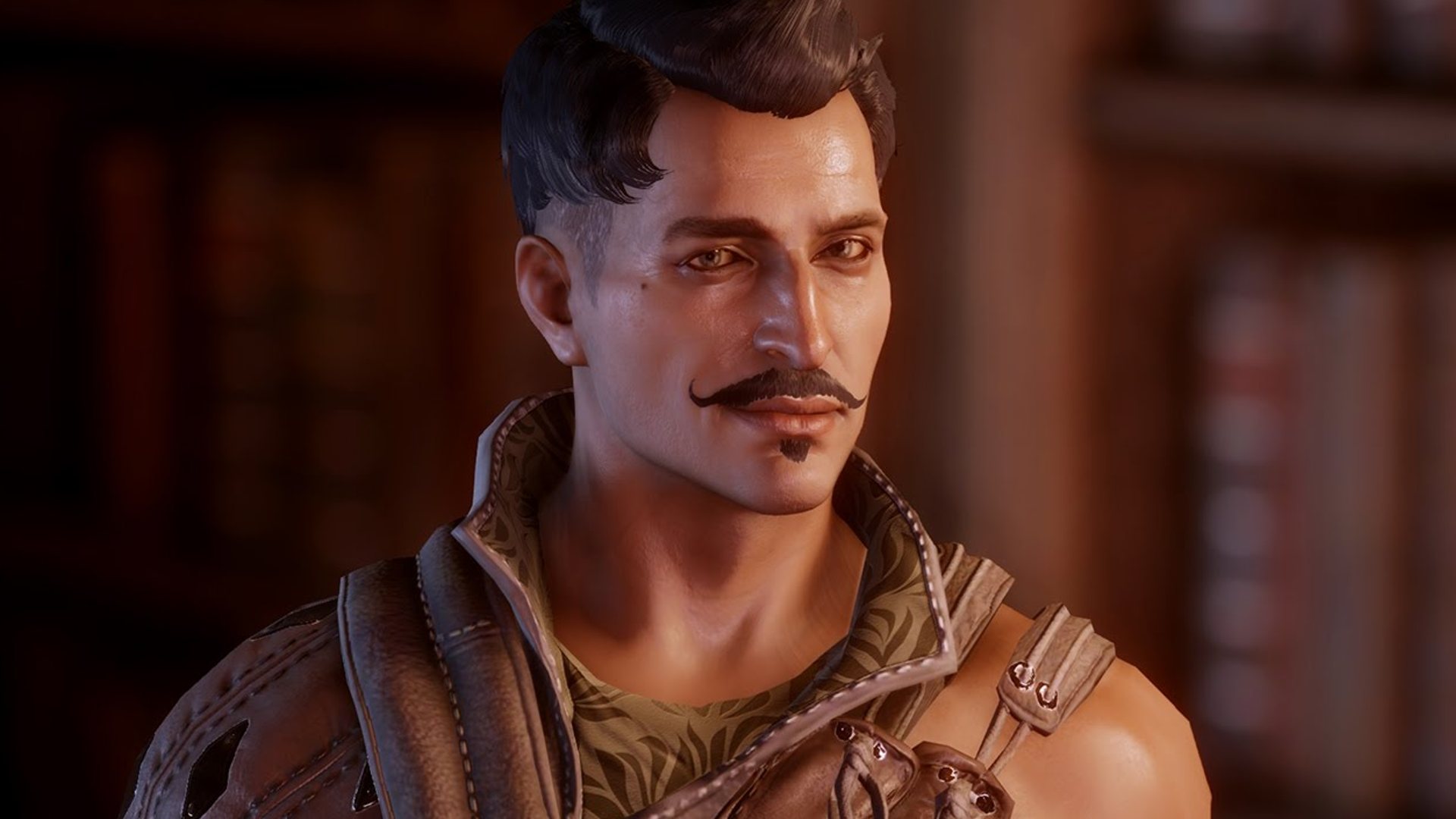
Dorian is perceived to be a stereotype because of his sexuality, and it’s in-game portrayal that for some, argues a “progressive slant” many feel uncomfortable with in a game like Dragon Age. The addition of "inclusive" sexualities has rubbed some the wrong way, believing that BioWare is resorting to tokenism out of a misguided attempt at being politically correct. The problem with this analysis is that it ignores the depth and richness of Dorian as a character. It instead only focuses on the surface blurbs that became the major news regarding Dorian when he was first revealed.
This is to me a problem with gaming media emphasizing Dorian's sexuality upon his reveal as his defining trait. The issue is the media fell on its own sword; the emphasis on Dorian’s sexuality became at the forefront of all discussions regarding him, despite his character reveal also discussing other tidbits about his personality and ideals. This surface presumption, perpetuated as a progressive step (despite the lesbian character Sera being revealed a few weeks earlier) becomes the main perception of the character and unfortunately is a gross misnomer in the end. The truth of the matter is of course different, as his homosexuality is not his defining characteristic in the game at all, but rather used as a backdrop for Dorian's own characterization.
What drives Dorian is mostly his pride - his own stubborn convictions and beliefs. He calls himself a “pariah” and wears the moniker as a badge of honor, relishing in his fight against the world. The reason for moving south is initially to prevent his former mentor, Magister Geron Alexius, from using powerful, unpredictable magic to unravel the world. After a well-done mission that can propel you through time (or, if you choose another route, meeting Dorian just as the big bad Coryphaeus attacks you), you can elect to recruit him to the Inquisition, where he lends his magical talents, and smarmy sarcasm, to your cause.
Dorian presents himself as a confident, somewhat vain individual who has a hint of arrogance in his own speech. Much of this should be credited to the amazing performance given by his voice actor, Ramon Tikaram, whose delivery offers a wide arrangement of emotions in a matter of sentences. Many of the game's early conversations hint at Dorian’s growing frustrations with the world he knows, his homeland the Tevinter Imperium. A decadent, often marginalized part of the Dragon Age world because of their use of slaves and blood magic, the Mageocracy of Tevinter has been a constant presence of “evil” in most encounters with them throughout the series.
Characters outright hate Tevinter for their stereotypes, but much of the hatred comes from the nation's role in shaping the world; in-game history states it was Tevinter who caused blights to occur when ancient magisters entered the fade physically for the first time, causing corruption and destruction upon Thedas. This also led to a division of the Chantry between Tevinter and Orlais, the nation that is the current seat of power for the Divine, becoming rivals paralleling the real-world history of the Great Schism.
Dorian hated the "fantasy" Tevinter perpetuated upon the world. He believes their “ideal plan” would stifle him personally. He recognizes that Tevinter is in decline and that this fantasy of superiority and perfection is a slow, unfortunate death that he, and many other citizens, simply feel powerless to stop. Yet for all of his frustrations and regrets over his homeland, Dorian is still a patriot, finding virtue and passions that are worth preserving. He hopes to do something about this, and in the process, stubbornly creates his own fantasy of what Tevinter can be.
In many ways, Dorian enacts what he despises throughout the game, a person who is living in their own ideals. His own arrogance, sarcasm, and pompous attitude make him one of the more unlikable members of the party; most of his banter sees Dorian constantly apologizing to the likes of Solas, Blackwall, and the Inquisitor for comments he made to them, often met with icy receptions by some and in other cases rumors and worries about his “influence” on the player character. Dorian, well aware of these perceived flaws due to his Tevinter background, even cautions the Inquisitor at one point to not utilize him to protect his own reputation.
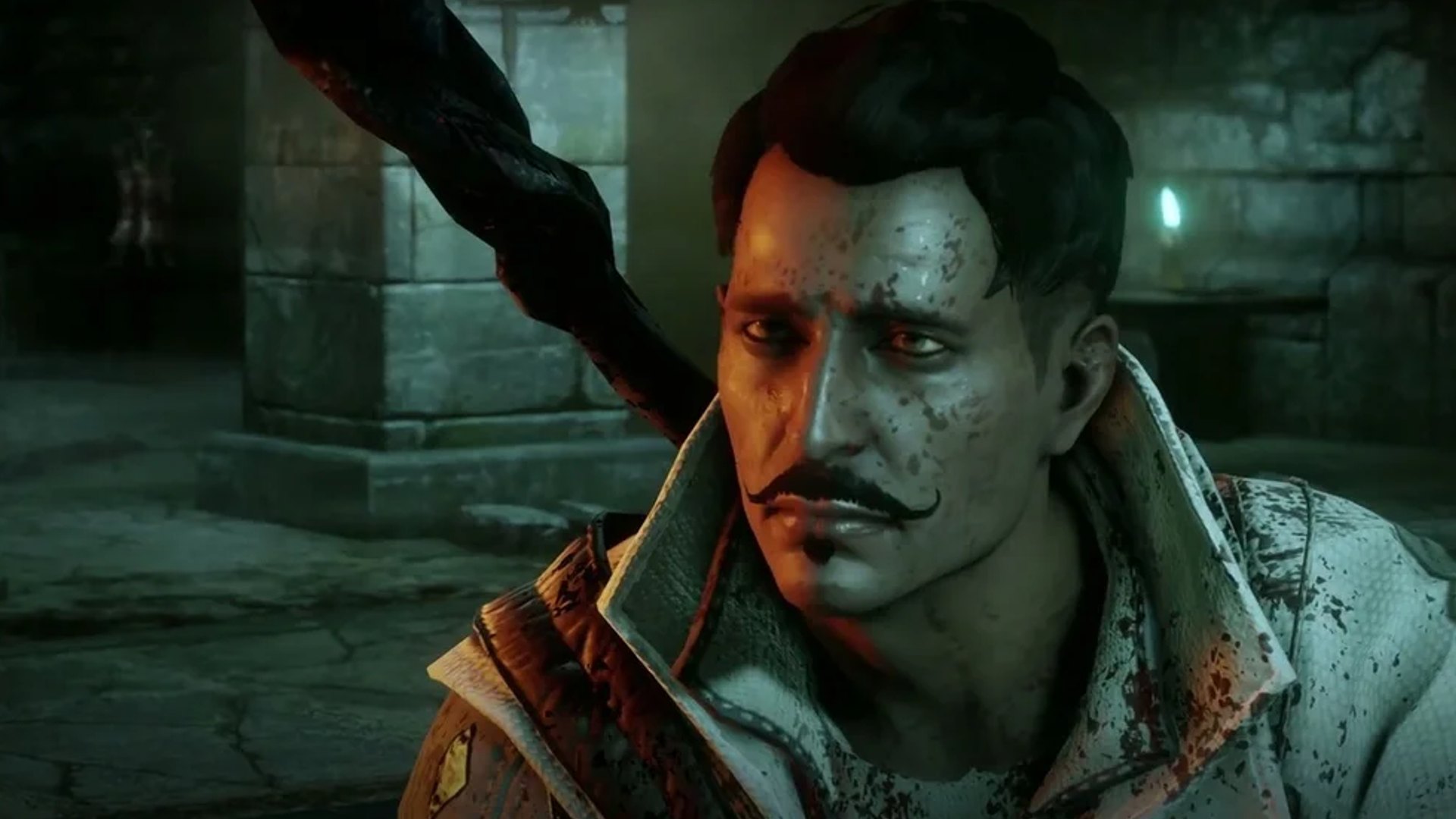
This sense of pride mostly stems from his own perception of himself. As a “self-imposed pariah,” Dorian takes comfort in looming over others for their faults, enjoying a sense of schadenfreude at his own superiority because he is an outsider. He sort of finds joy in slyly poking fun of others and their ideals, and when challenged, tends to stubbornly fight back, clashing over subjects he himself has no real perspective on. This makes Dorian a contradiction; his personal beliefs clash with the perception others have of him.
In his mind, he has been ostracized as a renegade mage, a lone warrior against his society’s flaws, yet at every turn often resorts to the same flaws in moments of weakness or regret. His own arrogance becomes a major stumbling block, eroding his charming façade bit by bit and revealing a more troubled, more insecure demeanor underneath, leading to constant apologies and worries over how others see him.
Much of this could be argued as only backdrop to his main reason for his pariah status, for refusing to play the part of the good son for his father. It is here where Dorian’s sexuality does come into play, but it is only tangential to the greater meaning of the problem - that Dorian despises the power of Tevinter culture has on men like his father and himself.
The issue with sexuality in Tevinter is not just another standard religious or legal problem. True, Tevinter society is conservative, but its issue is more rooted in breaking social taboos and traditions than breaking any laws or religious condemnation. LGBT communities in Japan, China, and most of East Asia, for example, do not have a culture of demonizing homosexuality; it is instead met with quiet negligence because of the fear of being shameful and against what is considered the norm. In this way, LGBT communities in Asia, rooted in a conservative culture that expects certain behaviors at all times, become an abnormality - an aspect of personal preference that for many must be hidden in plain sight, and from family members, because of expectations made on your role in the culture.
Homosexuality is essentially a quirk, a stray from what is the norm and what is expected. Now in the real world, that perception of being a taboo subject is changing, thanks in part to the growing visibility of the LGBT community in countries throughout the world. Even places like Japan are seeing LGBT issues going through a slow, cultural shift; only last year were the first same-sex marriages officially legalized, and the growing stigma of breaking away from the norm began years ago thanks in part to the election of the first openly gay politician in the country's history, Taiga Ishikawa.
As stated earlier in the game, Tevinter itself is a society rooted in traditions and a desire to create the “perfect mage” to rule as a magister, including arranged marriages to “diffuse traits” for a strong mage. Homosexuality in Tevinter, much like homosexuality in Japan, is seen as a quirk that is to be suppressed. As Dorian succinctly states, “Every perceived flaw - every aberration - is deviant and shameful. It must be hidden.”
We see this sort of conservative, traditional mindset manifest with another Tevinter character in Inquisition, Cremisius Acclasi, or Krem, of the Bulls Chargers. His story, although stemming from the Tevinter lower class, is about his struggle over his gender identity and nearly being killed for it after joining the Tevinter military, which heavily restricts roles in the military based on gender. In both cases, we see how sexuality and gender in Tevinter are treated, which again gives credence to the issue of cultural expectations as a whole.
In this way, the issues with his family are not taking umbrage with his sexuality because of his sexuality, but rather the perception his sexuality would have in the culture at large. Dorian’s father was more fearful of what society would say, not what he may have personally believed, and in a moment of irrational fear tried to “change” Dorian through blood magic, a fact that Dorian himself rightfully remains bitter about. His father choosing his “fucking legacy” over him shows how his own parents were caught in the prideful expectations of his homeland and not of the personal well-being of their son.
This is the true crux of the problem; Tevinter prides itself in gaining power and prestige by any means necessary, including blood magic. Such deviations from the norm, which Dorian hints at through conversation, become liabilities to the careers or even lives of any Tevinter magisters who step up to reform the status quo. The use of blood magic to preserve that status quo is part of the larger problem with the culture of Tevinter, more so than even how sexuality is treated. A lot of the major "evils" of Tevinter culture, slavery, their social structure and class system, and even the Chantry, are emblematic of how much this feeling of superiority seeps into the mindset of Tevinter citizens. To continue the fantasy of Tevinter superiority, Tevinter itself censures any deviation of their status quo, sometimes through extreme methods, as in the case of Dorian's father.
Many have argued that the confrontation is too on the nose, as a sort of “coming out” scene, and in truth it is, but it is also why the scene is effective. It can be argued it is overly preachy, but in truth, the entire scene is about Dorian coming to terms with himself, his own pride and bitter feelings, and how to cope with them. His confrontation with his father can go several ways, mostly through player input as the Inquisitor is also involved in the meeting. In one iteration, Dorian washes his hands of his father, stubbornly throwing away any chance of reconciliation. In another, the two come to a mutual realization; they’re both prideful people who have said, and done, things that have hurt their relationship, perhaps forever, but will try to make it work if they can.
It was also a weight lifted off Dorian to put him at ease regarding his “pariah” status. For much of the game, Dorian relishes in being an outsider, an outcast in rebellion. Towards the end of Inquisition, he matures and realizes that true change can only come if he is actively participating, a testament to how his character can grow if allowed to do so. Realizing he can only do good by becoming a voice in Tevinter, Dorian vows to leave the Inquisition after Coryphaeus is defeated and attempts to change his homeland from within. The epiphany moment comes as the conclusion to his character arc, showing how his confident swagger can be put to good use in a cause he always found just.
It is no surprise to find Dorian somewhat successful in his promise. In the Trespasser DLC, the final piece of content released for Inquisition, Dorian meets the Inquisitor two years later, one of the few characters who will automatically be present regardless of how he was treated or left the Inquisition in the main game. Given a token appointment as an ambassador of Tevinter to peace talks at Halamshiral, Dorian learns that his father eventually passes away (suspecting assassination) and that he now is a magister. Dorian also sees his life changed based on his interactions with his father; either finding a way to somewhat reconcile or lamenting how he never had the chance to apologize to him.
With his new appointment as magister waiting at home, Dorian is set up as being a major player in the possible reformation of Tevinter. Along with some close allies, he spearheads a new faction, the Lucerni, to push for reforming Tevinter and redeeming his country's maligned reputation. Dorian, regardless of how he feels about the Inquisitor (including if you romanced him) comes to this conclusion through pure stubbornness or deepening his own perceptions of the world at large, and will no doubt become a major player, and possible faction, in the fight against Fen’Harel in the next Dragon Age game.
It is a mistake to write off Dorian as being “inclusive for inclusive sake” because of his sexuality, as Dorian is much more than that. His own flaws, virtues, and contradictions mark him as a man emblematic of the complex nature of Tevinter itself; a character that felt trapped because of his homeland's flaws, yet defiant because of his own. His growth into a man pursuing action, over criticizing others for self-gratification, shows how complex Dorian really is, and his sexuality never defined these traits - it was simply a catalyst for Dorian discovering the ugly truth about his foolish pride, and how to overcome it.
This is what fans of BioWare's writing latch onto, the believability of a character like Dorian and the complexity of his motivations, desires, and ideals, and how they fit into the world around him. If nothing else, Dorian goes beyond the argument of pure tokenism that has stubbornly been attacked because of his sexuality. When looking deeper into his overall arc and growth, we see much more there, making him a worthy, and arguably memorable character in his own right.
This post was originally published in 2016 as a part of our Character Select series. It's been republished to have better formatting.
Have a tip, or want to point out something we missed? Leave a Comment or e-mail us at tips@techraptor.net
